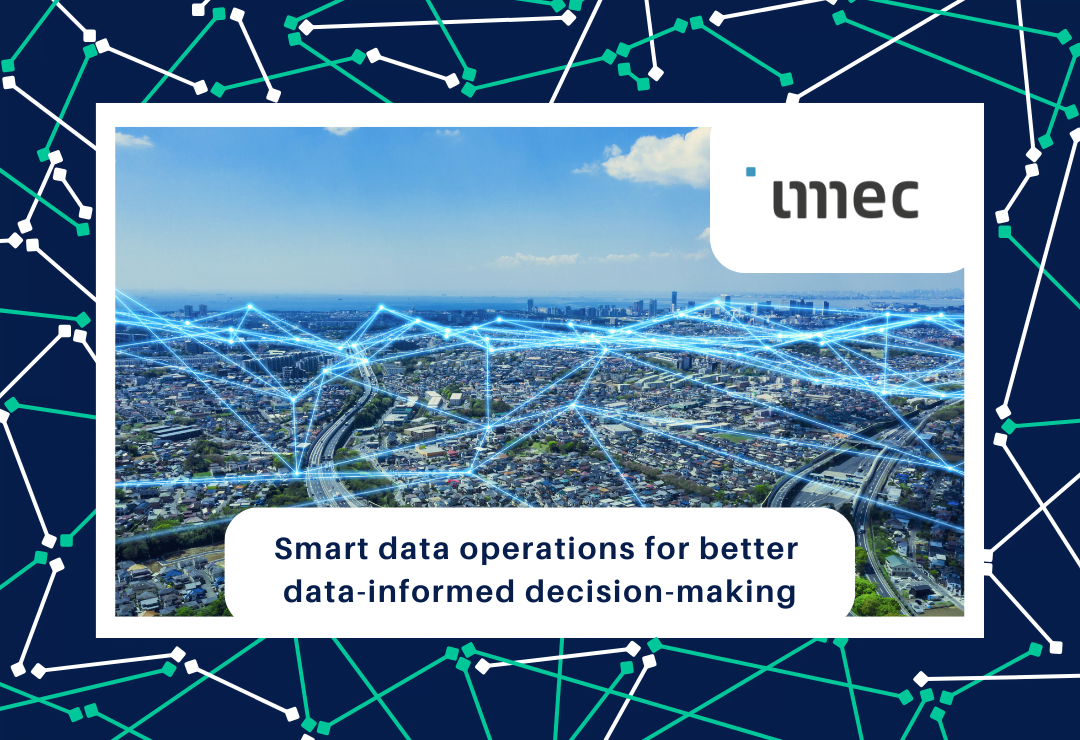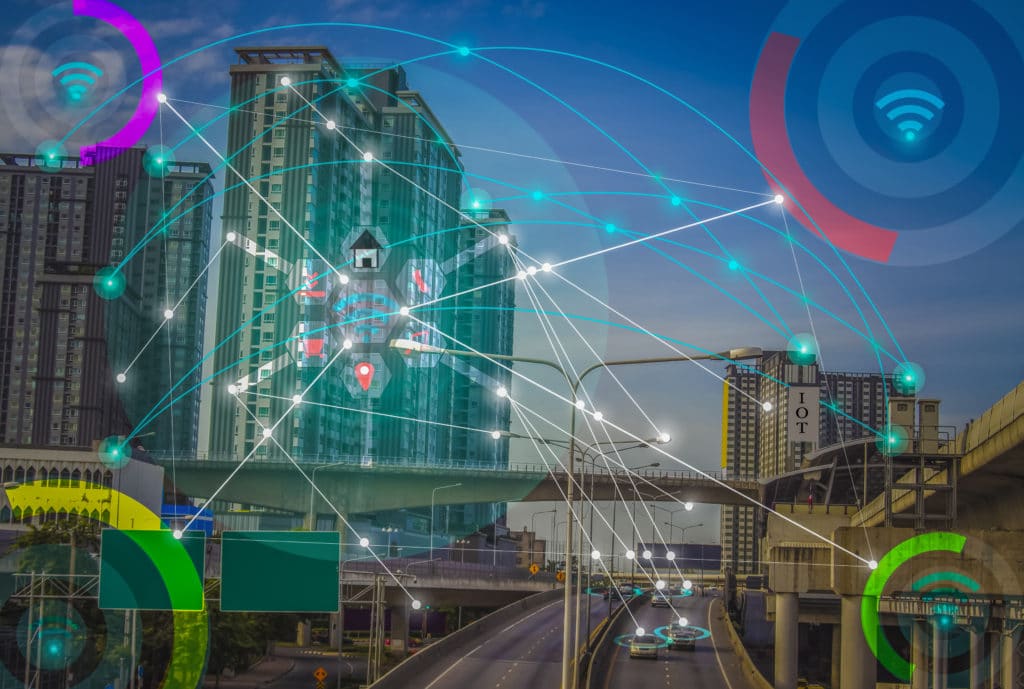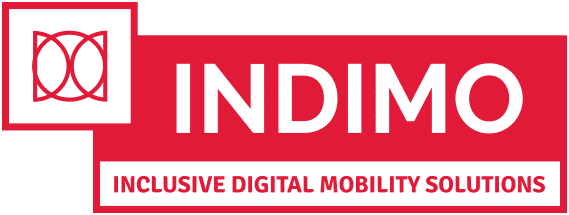IMEC shows how smart data operations can improve urban logistics
Earlier this year, POLIS member IMEC published a report on the topic of smart data operations and data-informed decision-making. In the report, IMEC explains how smart data can make cities more responsive to crises. POLIS is excited to share the group's findings and welcomes new opportunities for more sustainable urban governance.
Data and Information Technology (IT) have gained much attention in recent years, but often for the wrong reasons. From privacy concerns to the paranoia around algorithms, the debate on big data remains far from resolved. However, there are plenty of reasons to be excited about the future uses of data. In their report, published this year, IMEC reveals how big data could make urban governance more efficient and sustainable, including within the transport sector.
New associate POLIS member, IMEC, is an independent not-for-profit organisation that is a trusted partner for companies, start-ups and academia. As a world-leading R&D and innovation hub, imec accelerates progress towards a connected, sustainable future. The researchers, project managers and developers have years of experience on the (urban) mobility and logistics topic, and have the technical skills to develop data-driven solutions and A.I. applications.
As such, this report comes at a critical time, as cities, regions and transport operators strive to accelerate the shift to smarter mobility solutions.
Data-driven cities
The potential of big data and IT is growing steadily. At the same time, society is facing a multitude of unprecedented challenges, from climate change and increased population density to public health concerns, threats to security, and the dwindling availability of natural resources.
In light of these combined changes, there are more than a few good reasons for municipal authorities to explore new solutions. In particular, it would be advantageous for cities to consider how data might help them protect urban residents and improve the quality of life in cities around the world.
For this reason, IMEC poses an important question:
What if cities could use data from the entire urban population (without violating citizens' privacy) to better understand the relationships between issues like health, pollution, and mobility, and develop more proactive responses to future crises?
Optimising urban logistics
By taking better stock of the data already available and finding ways to responsibly gather more data on urban phenomena, city leaders could achieve truly tremendous feats. Near real-time detection of a flood event and its impacts on urban dwellings and transport systems is just one example of the kind of capabilities that data-driven cities could harness in the years to come.
The use of data to devise fitting responses to such events is what IMEC calls "data-driven decision-making." According to IMEC, data-driven decision-making can be defined as "a process of making decisions based on actual data rather than intuition, experience, or observation alone."
Data-driven cities could optimise urban logistics in ways previously believed impossible, and the proof comes from the work already being done around Europe. One ground-breaking project highlighted in IMEC's report is VLOCA (Vlaamse Open City Architectuur). Among VLOCA's goals is to link Flemish municipal authorities to smart sensors throughout their cities so that they can use real-time data to monitor and improve urban air quality.
Because existing infrastructure in cities is impacted by changing weather patterns that increase flood risk and reduce the reliability of transport systems, data-driven urban logistics is not only a short-term solution but an investment in long-term climate resilience.
Step one: Make data smarter and fairer
Before municipal authorities can roll out plans for a data-driven future, they first need to ensure that their means of data collection and management are trustworthy and reliable. Understanding data in its context and knowing how to apply data responsibly, IMEC claims, is the key to achieving sustainable, data-driven governance.
For data to be truly smart, IMEC says it must be:
- trusted – accurate and consistent
- contextual – attuned to the acceptable means of collection, interpretation, and use of data
- relevant – collected and used for a purpose that fits its nature
- cognitive – transformed with the help of technology to facilitate human decision-making
- predictive – focused on trends and probabilities of future events, such as floods, pandemics, and spikes in air pollution
- consumable – available for easy use by both machines and humans
Faced with public pushback against biased algorithms and privacy breaches, city leaders will therefore need to ensure that the populations that they serve are on board with their ambitions.
As new possibilities and solutions arise, the research of groups like IMEC will continue to be valuable in devising truly sustainable solutions.
If you are interesting in learning more about data-driven decision-making, you can read IMEC's full report here.



